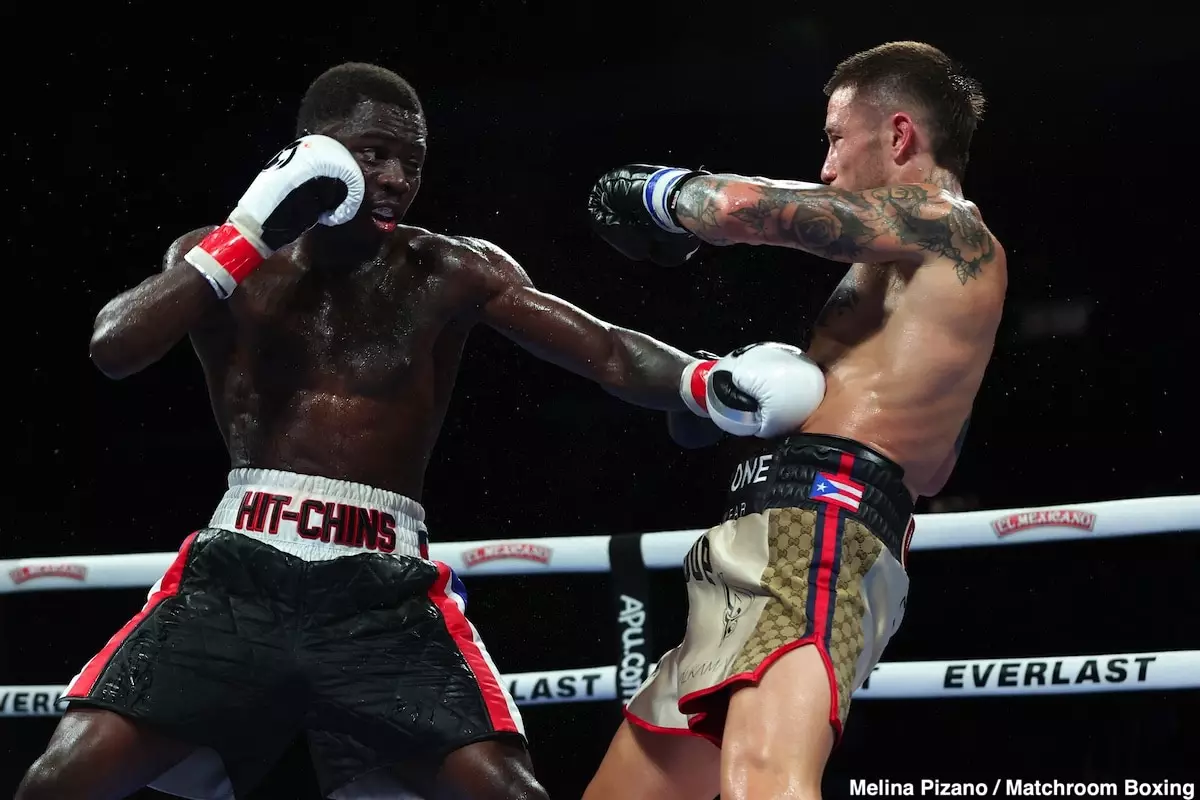The boxing world experienced a kaleidoscope of emotions during an action-packed night filled with intense bouts and unexpected outcomes. One fight, in particular, transcended the mere spectacle of athletic prowess to ignite discussions around the integrity of boxing judging. The battle between Richardson Hitchins and Liam Paro for the IBF 140-pound title in Puerto Rico not only concluded with a surprising outcome but also left fans questioning the standards of officiating in a sport where fairness is paramount.
The clash between Hitchins from Brooklyn and Australia’s Paro was a mixed bag of skill, passion, and tension. The outcome, a split decision victory for Hitchins, demonstrated his tenacity and adaptability inside the ring. Initially, Paro seemed to dictate the pace of the fight, winning the first four rounds with his tactical southpaw stance and accurate punches. However, the tides turned as Hitchins, urged by his corner to escalate his performance, dominated the middle rounds with an impressive combination of speed and precision.
In the critical fifth round, both fighters suffered cuts, showcasing the brutal reality of boxing. As the fight progressed, Hitchins found a rhythm, leveraging his jab effectively and frustrating Paro, who was unable to land significant blows. The judges’ scorecards, however, revealed a shocking dissonance with the general consensus of the viewing public and analysts, as one judge inexplicably scored the fight in favor of Paro.
While boxing celebrates the victories and skill of its athletes, the focus quickly shifted from Hitchins’ noteworthy performance to the troubling nature of one judge’s scorecard. Nelson Vazquez’s score of 117-111 for Paro has been met with widespread derision and disbelief. Commentators and analysts alike reacted vocally, with DAZN commentator Corey Erdman stating that this judgment was nothing short of “unfathomable.”
The significance of a judge’s scorecard cannot be understated; it not only reflects the fight’s outcome but also shapes the careers and reputations of the fighters involved. The extreme discrepancy in this instance—contrasting sharply against the other two cards which favored Hitchins—raises questions about the qualifications and accountability of those tasked with making these critical decisions.
Shakur Stevenson, a prominent figure in the boxing community, was equally candid in his criticism, suggesting that such questionable judgments could tarnish the sport’s reputation. The overwhelming sentiment among fans and professionals is that Vazquez’s scorecard draws parallels to some of the most notorious scoring blunders in boxing history, reminding audiences that this problem is far from new.
The incident involving Hitchins and Paro serves as a reminder of a persistent problem in professional boxing: inconsistency in judging. Such scorecards can have dire consequences, potentially overshadowing the remarkable talent displayed by fighters and diminishing the sport’s credibility. The question arises: what can be done to mitigate these issues?
Promoters and boxing organizations must critically reevaluate their processes for vetting and selecting judges. Increased transparency and the establishment of strict regulations regarding scoring criteria could serve to enhance the reliability of outcomes. Additionally, the establishment of a formal review process for problematic scorecards could help hold judges accountable for egregious errors.
While the right athlete emerged victorious in this match, the scars of dubious judging will linger in memory. Until the integrity of officiating is addressed, boxing may remain subject to these arbitrary and troubling outcomes. Last night’s headline-worthy event serves as both a celebration of skill and an urgent call to action for the boxing community to strive for a more fair and transparent sport.

